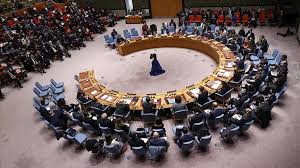
African leaders attending the 80th United Nations General Assembly in New York have united in calling for urgent reforms to the Security Council, more equitable global governance, and stronger recognition of Palestine.
Speaking at the UN podium, several heads of state emphasised that the current structure of the Security Council no longer reflects the continent’s geopolitical weight.
Africa, they noted, contributes a significant share of peacekeeping forces and development efforts yet remains largely excluded from strategic decision-making.
“These five permanent members make decisions on behalf of more than 85% of the world’s population living in the Global South,” said Cyril Ramaphosa, President of South Africa, referring to the veto powers held by the United States, China, Russia, France, and the United Kingdom. He added that this imbalance undermines the UN’s legitimacy and hampers collective action.
Senegalese President Bassirou Diomaye Faye called for a fairer and more inclusive global system, advocating for equitable taxation and access to sustainable financing to support development goals across Africa.
Several other leaders echoed the call for reform. Denis Sassou-Nguesso, President of the Republic of Congo, said: “The United Nations is indispensable, but only if it knows how to evolve and get closer to the people.” Faustin-Archange Touadéra, President of the Central African Republic, highlighted the disproportionate burden of armed conflicts in Africa, noting that more than 40% of global conflicts occur on the continent, and called for sustainable financing for peace operations.
The Palestinian question also featured prominently. Ramaphosa condemned ongoing violence in Gaza and urged full Palestinian membership in the UN, drawing parallels between Palestine’s struggles and Africa’s colonial history. Other national and regional concerns were raised, including Madagascar’s energy transition, Sahel stability, and the territorial dispute over Mayotte, addressed by Comorian President Azali Assoumani.
As the UN marks its 80th anniversary, African leaders stressed that the organisation cannot continue operating under a model inherited from the Second World War. Their message was clear: without substantial reform, the UN risks further loss of legitimacy amid global crises and the rising aspirations of the Global South.



